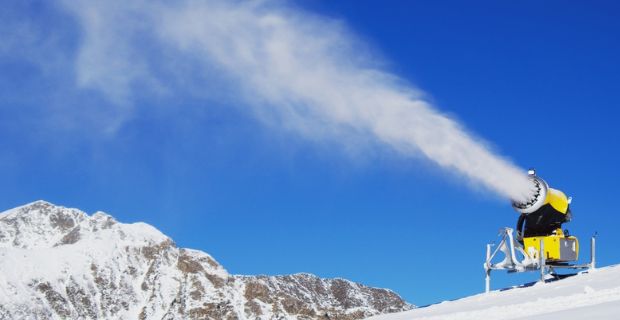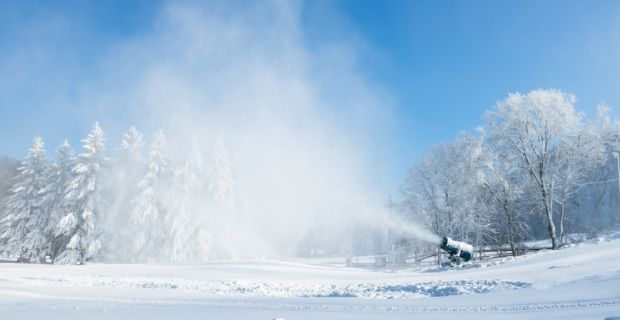Are Snow Machines Safe?
Are Snow Machines Safe? Yes, snow machines are safe. They are made with tough materials that can withstand the cold and heavy snow. The parts are also designed to work together to keep the snow from getting in and damaging the machine.
If you’re wondering whether snow machines are safe, the answer is yes! Snow machines are powered by either electricity or propane, and both are safe to use. The main concern with snow machines is that they can create a slip and fall hazard, so be sure to keep them away from high-traffic areas.
Other than that, snow machines are perfectly safe to use and make a great addition to any winter event!
Do Snow Machines Make A Mess?
The short answer to this question is: it depends. Most snow machines do not create a mess, but there are a few models that can scatter snow in all directions, making a mess of the area around it. If you are considering purchasing a snow machine, be sure to research the model you are interested in to find out if it creates a mess.
One of the benefits of using a snow machine is that it can help you avoid making a mess while shoveling snow. Snow machines are ideal for small areas, such as decks and patios, and they can be used to create tunnels and pathways through the snow.
If you are using a snow machine in an open area, be sure to keep the area clear of obstacles, such as trees and parked cars.
Is Artificial Snow Safe?
When the temperatures start to drop and the leaves start to change, many people’s thoughts turn to snow. For some, that means bundling up and hitting the slopes. For others, it means firing up the snow machine in the backyard. Are snow machines safe? The answer is yes, but there are a few things to keep in mind.
First of all, always dress appropriately for the weather. Even if it’s cold outside, you can still get overheated while using a snow machine. Wear layers so you can adjust your clothing as needed. It’s also important to wear a helmet when using a snow machine.
Another thing to keep in mind is that snow machines can be very loud. Make sure you’re not too close to other people or animals when you’re using it, and avoid noise-sensitive areas like hospitals or schools.
Finally, Yes, artificial snow is safe. It is made of water and other ingredients that are safe for people and the environment.
ADJ Snow Machines Features
Are There Chemicals In Artificial Snow?
Yes, there are chemicals in artificial snow. The most common chemical is sodium chloride, which is the same thing as table salt. Other chemicals that are sometimes used in artificial snow include calcium chloride and magnesium chloride.
These chemicals can be harmful to the environment and to people if they are not used properly.
Do Snow Machines Use Chemicals?
The majority of snow machines use a glycol-based fluid to generate snow. This fluid is commonly referred to as “snow juice” and is made up of water and propylene glycol. When the glycol-based fluid is pumped through the snow machine, it is atomized into an extremely fine mist.
This mist is then blown through a chilled nozzle where it instantly freezes and is expelled as snow. While most snow machines use a glycol-based fluid, there are some that use other chemicals such as carbon dioxide or dry ice. These chemicals can be used to generate snow, but they are not as common as glycol-based fluids.
Is Snow Spray Harmful?
When it comes to snow spray, there are varying opinions on whether or not it is harmful. Some people believe that snow spray is perfectly safe, while others believe that it can be harmful if used excessively or in the wrong way. So, what is the truth?
To get to the bottom of this issue, we need to take a closer look at snow spray and what it is made of. Snow spray is typically made of water, glycerin, and propylene glycol. While propylene glycol is considered to be safe by the FDA, glycerin can be a bit more controversial.
Glycerin is a humectant, which means that it helps to keep things moist. It is often used in skin care products for this reason. However, some people believe that glycerin can be drying to the skin if used in excess.
This is why it is important to use snow spray in moderation and to always follow the directions on the bottle. In general, snow spray is considered to be safe. However, there is always the potential for it to be harmful if it is misused.
So, be sure to use snow spray in moderation and always follow the directions on the bottle.
Is Snow Spray Harmful To Eyes?
When it comes to snow spray, the answer isn’t as simple as a yes or no. Some studies have shown that snow spray can be harmful to eyes, while others have shown that it’s not harmful at all. So, what’s the verdict?
For the most part, snow spray is not harmful to eyes. However, there are some instances where it can be harmful. If the snow spray gets in your eyes, it can cause irritation and redness.
In some cases, it can even cause an allergic reaction. If you’re concerned about the potential risks of snow spray, there are a few things you can do to protect yourself. First, make sure that you’re using a snow spray that is designed for use on the face.
Second, always wear goggles or sunglasses when using snow spray. This will help to protect your eyes from the spray. Overall, snow spray is not harmful to eyes.
However, there are some instances where it can be harmful. If you’re concerned about the potential risks, make sure that you’re using a snow spray that is designed for use on the face, and always wear goggles or sunglasses when using it.
Snow Spray Side Effects
If you’re considering using snow spray this winter, be aware of the potential side effects. Snow spray is made from a variety of chemicals, including propane and butane, which can be harmful if inhaled. Additionally, the chemicals in snow spray can irritate your skin and eyes.
If you do use snow spray, be sure to use it in a well-ventilated area and avoid inhaling the fumes. Also, be sure to wear gloves and eye protection to avoid contact with the chemicals.
Is Snow Spray Edible?
Yes, snow spray is edible! In fact, it’s a popular wintertime treat in many parts of the world. Snow spray is made by combining water and sugar, and sometimes flavorings or colorings, then freezing the mixture into a fine mist.
This mist is then sprayed onto the snow, creating a sweet and crunchy coating. Snow spray is safe to eat, but it’s important to be aware that the sugar content can be high. If you have diabetes or are watching your sugar intake, it’s best to enjoy snow spray in moderation.
Whether you’re looking for a fun winter activity or a tasty treat, snow spray is a great option. So go ahead and give it a try!

Is Snow Spray Flammable?
When it comes to flammability, snow spray is no different than any other aerosolized flammable liquid. Snow spray is highly flammable and should be used with caution. If you are using snow spray near an open flame, be sure to keep a fire extinguisher close by in case of an accident.
Is Artificial Snow Bad For The Environment?
When it comes to the environment, is artificial snow bad? The short answer is: it depends. The main ingredient in artificial snow is sodium chloride or common salt.
When salt is applied to roads and sidewalks in winter, it melts snow and ice by lowering the freezing point of water. The same process happens when salt is used to make artificial snow. The problem is that when the snow melts, the salt doesn’t just disappear.
It can run off into nearby streams, lakes, and groundwater, where it can harm plants and animals. Salt can also stay in the soil for years, making it difficult for plants to grow. There are ways to reduce the environmental impact of artificial snow.
For example, using less salt, or using salt with a lower concentration of sodium chloride. Some artificial snow products also contain other ingredients, like calcium carbonate, that can help reduce the salt’s impact on the environment. In the end, it’s up to each individual to decide whether the environmental impacts of artificial snow are worth the convenience and enjoyment it provides.
Is Instant Snow Toxic To Dogs?
There are a lot of myths about what is and isn’t safe for dogs to eat. So, is instant snow toxic to dogs? The answer is no, instant snow is not toxic to dogs.
In fact, it’s actually quite safe for them to eat.
Instant snow is made from sodium polyacrylate, which is a type of polymer. This polymer is used in a variety of products, including baby diapers and wound dressings.
It’s also used as a food additive. When sodium polyacrylate is mixed with water, it forms a gel-like substance.
So, if your dog eats some instant snow, there’s no need to worry.
The worst that will happen is that they’ll have a tummy ache. If you’re concerned, you can always call your vet for advice.
Snow Poisoning
According to the National Weather Service, “snow poisoning” is a very real phenomenon that can occur when people eat snow that has been contaminated with pollutants. Snow can act as a sponge and absorb pollutants from the air, including lead, mercury, and other heavy metals. These pollutants can then be transferred to people who eat the snow, leading to potential health problems.
There are a few steps you can take to help avoid snow poisoning. First, try to only eat snow that has fallen freshly from the sky. If you must eat older snow, try to brush it off first to remove any contaminants that may be on the surface.
And finally, be sure to wash your hands thoroughly after coming into contact with the snow. If you think you may have been snow poisoned, seek medical attention immediately. Symptoms of snow poisoning include nausea, vomiting, stomach pain, and diarrhea.
In severe cases, it can lead to organ damage and even death. So if you think you’ve been snow poisoned, don’t take any chances – get to a doctor right away.
Conclusion of Are Snow Machines Safe?
There has been much debate over the safety of snow machines, with some people arguing that they are safe and others claiming that they are not. However, the majority of scientific evidence seems to support the claim that snow machines are safe. There have been several studies conducted on the matter, and they all seem to conclude that snow machines are not dangerous.
The main argument against snow machines is that they emit carbon monoxide, which can be dangerous. However, the levels of carbon monoxide emitted by snow machines are very low and are not considered to be dangerous. In fact, the levels of carbon monoxide emitted by snow machines are lower than the levels emitted by cars and trucks.
Another argument against snow machines is that they can cause avalanches. However, there is no evidence to support this claim. In fact, most avalanches are caused by natural factors, such as heavy snowfall or weak snowpack.
Snow machines actually help to reduce the risk of avalanches by compacting the snow and making it more stable.
Overall, the evidence seems to be clear that snow machines are safe. There is no scientific evidence to support the claims that they are dangerous.
So, if you are planning on using a snow machine, you can rest assured that it is safe.


